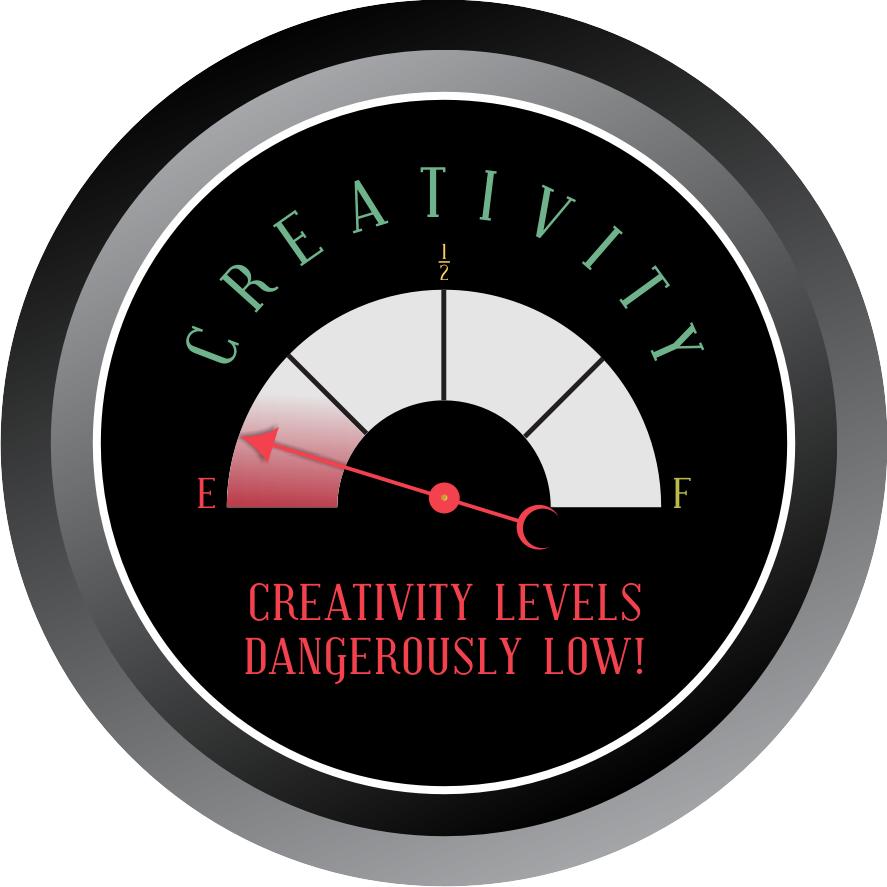It might surprise some people reading this, because I’ve been publishing these blog posts every week for a month or two now, but I have been recovering from creative burnout for quite some time. Part of this is because of my last game development experience I wrote about in my last post, Navigating Your First Game Development Contract. Part of it is because it’s difficult in the saturated social media world to receive feedback for your creative endeavors. Yet another part is our human tendency to compare our work to other creatives who might be more successful than ourselves.
None of the reasons listed above are more valid or more justifiable than others. The worst thing you can do for yourself when you are recovering from creative burnout, is to beat yourself about it. Not only will that fail to get you out of a slump, it will actually make you feel significantly worse and may even lead to depression. In fact, it might seem illogical but the first thing I recommend doing is accepting that it is okay to be in a slump. We are all human beings, and human beings are not perfect. Therefore, you can not expect yourself to go through life never experiencing any creative slumps. They happen to many of us, and we can overcome them.

One of the first things I noticed about my slump was that starting a new project felt like a completely overwhelming task. My energy reserves felt depleted, probably because I used most of them up on my last project. As creative people we are using our right brain constantly and it can get worn out, like a muscle. This is especially true if you just finished tackling a large project. So, have a little sympathy for yourself. I’ve found that when I’m feeling down it helps a lot to practice loving kindness meditation. It may seem like a small step, but it’s important to gain some of that confidence back. Believe you are worth comfort and respect. That starts with loving yourself!
What can you do once you are feeling a little bit better? I suggest starting with small things. Projects that you can share with friends and loved ones to gain back a bit of that validation and start feeling good about yourself again. If you’re a painter, that might mean making miniature landscape paintings on tiny canvases. If you’re a musician, maybe you remix an old track or hit up an old friend for a collaboration. Writer? Maybe you write some flash fiction. Game developer? You might look up game jams on itch.io that have strict limitations on time and complexity.

The point is to take baby steps toward getting back into your full creative practice. Have patience with yourself. It might require a number of small projects, and you might even have to revisit the first step of practicing loving kindness and compassion for yourself if one of these small projects doesn’t work out the way you hoped or you feel some resistance. If you are burnt out, you should focus on having compassion for yourself and practicing loving kindness.
It is likely that if these small projects feel exhausting or give you no sense of accomplishment, then you experiencing severe creative burnout That doesn’t mean you are broken. It just means you need to give yourself a little bit more time recovering. Focus on rest and relaxation before picking up your creative practice again. Don’t force yourself to work on something creative if it doesn’t give you any sense of joy or excitement.
Another important thing: whether you are burnt out or just in a slump, reduce your time on social media. This goes especially in terms of following successful creatives. Even if think we are just admiring another creatives work, subconsciously we still compare ourselves and feeling worse. If you know you have that kind of masochistic streak, you can temporarily delete some of the social media off your phone. That way you don’t end up mindlessly browsing and feeling worse without even realizing it.

Finally, remind yourself that motivation is good, but it doesn’t necessarily come before action. In fact, more often than not, motivation and action are closely linked, and action actually comes first. With the case of creative projects, oftentimes we begin making something, then we become more motivated by our progress, and the cycle repeats itself. So don’t be surprised if your first small project feels a little bit tedious at first, that is normal!
There is a ton more I could say on this subject. Recovering from creative burnout ties into our general mental health and there are tons of discussions around that topic online. However I want to provide practical advice so you can get started quickly. Feel free to comment where you are at in your slump recovery journey, and I will try to offer my best advice. You can also tweet at me @nadyaprimak. Good luck with your recovery journey!
